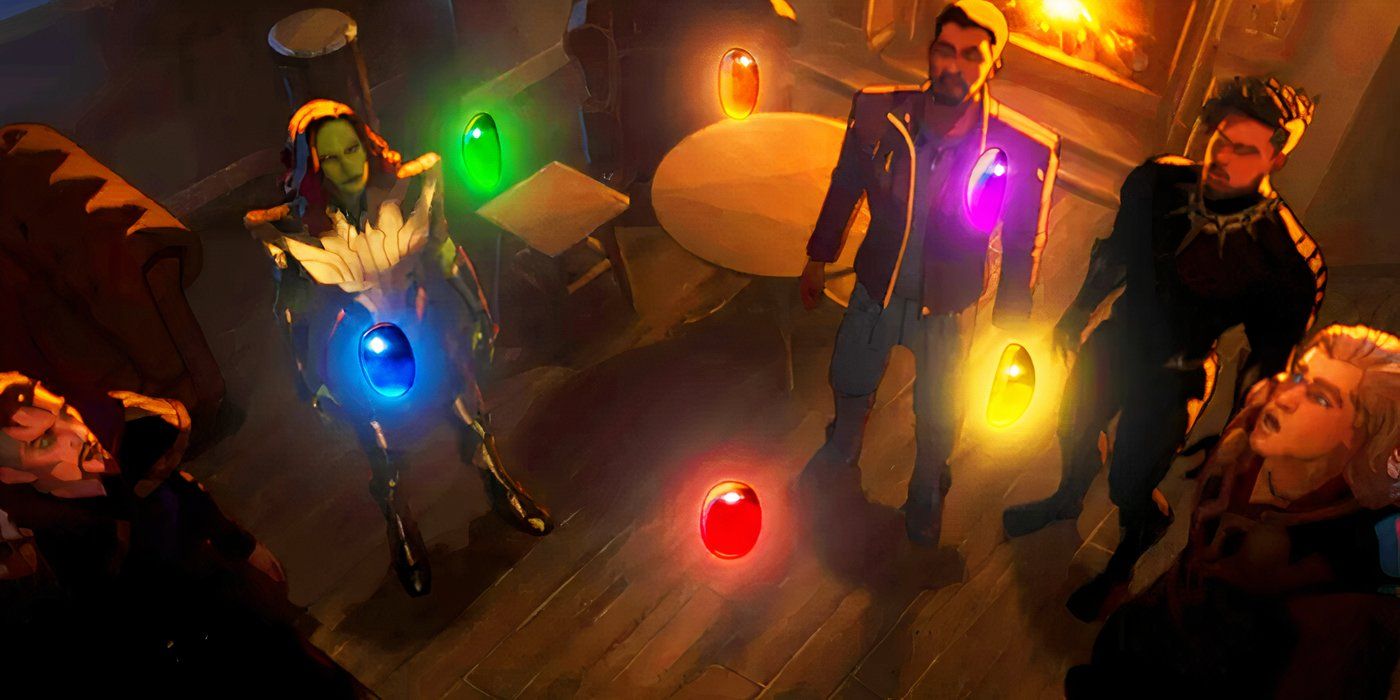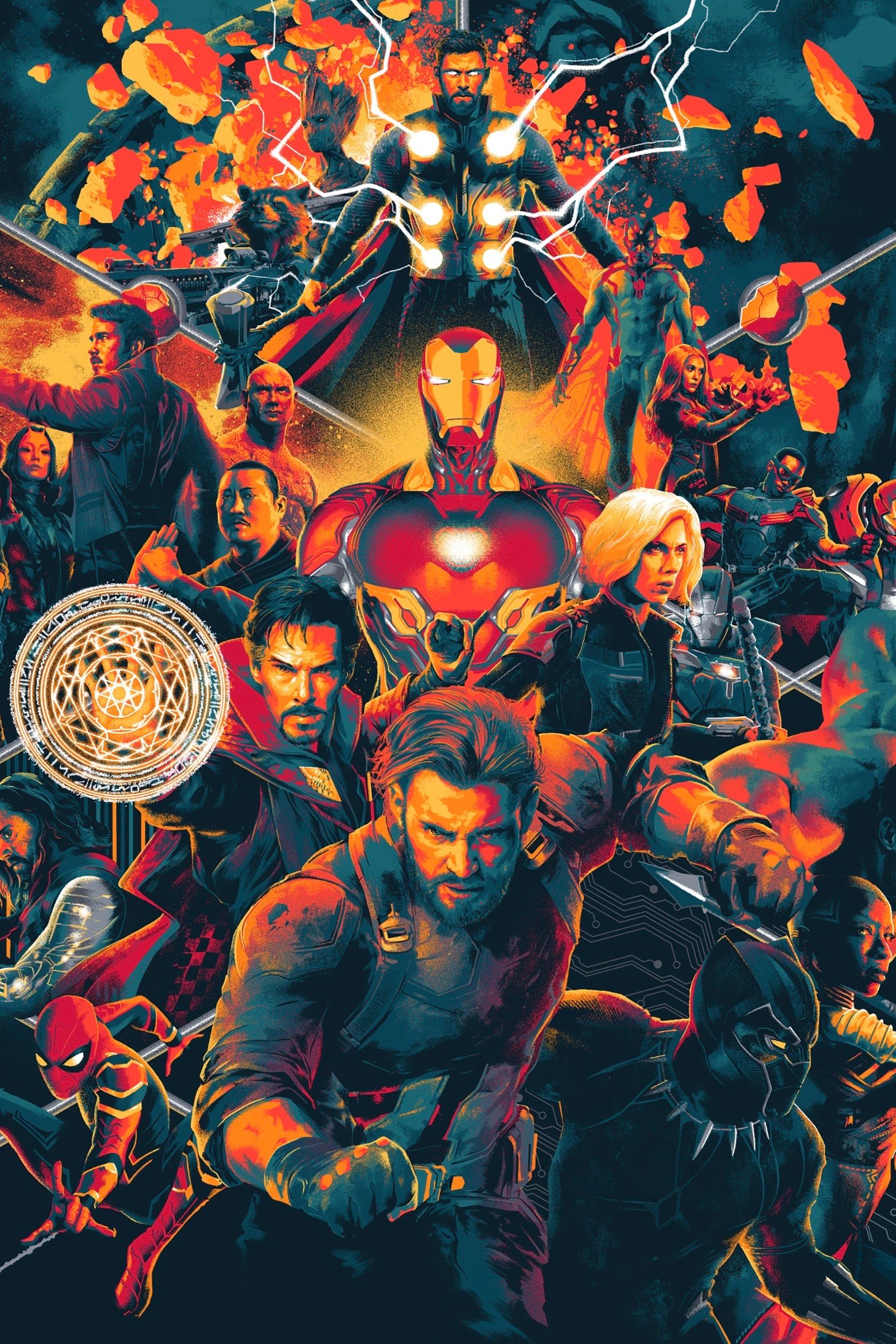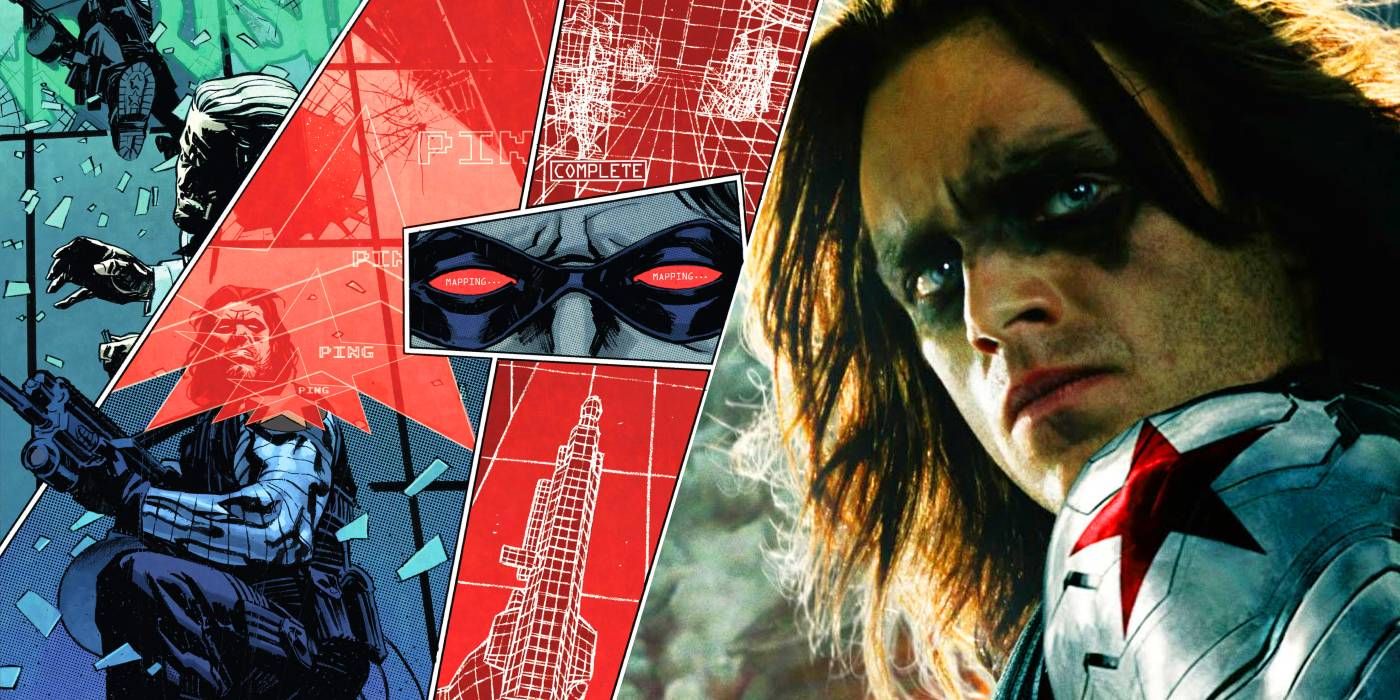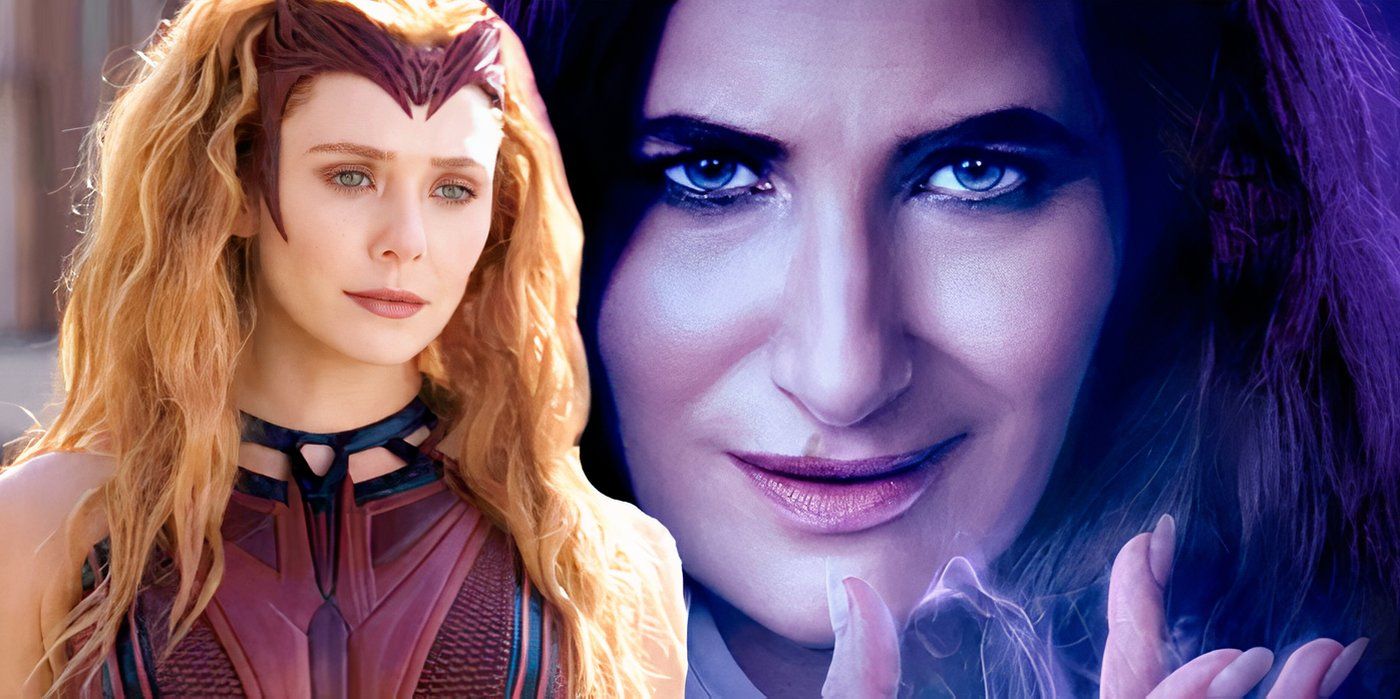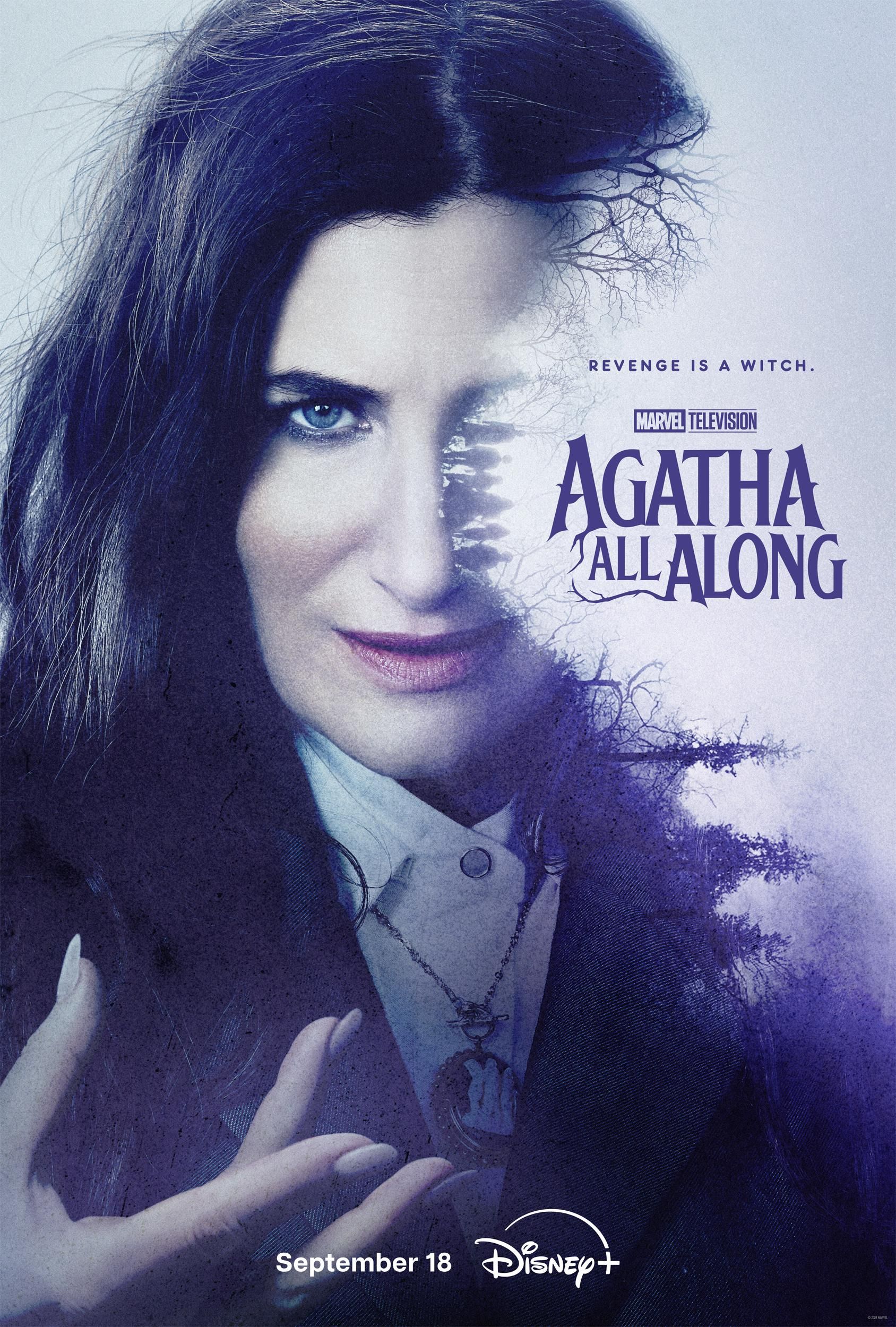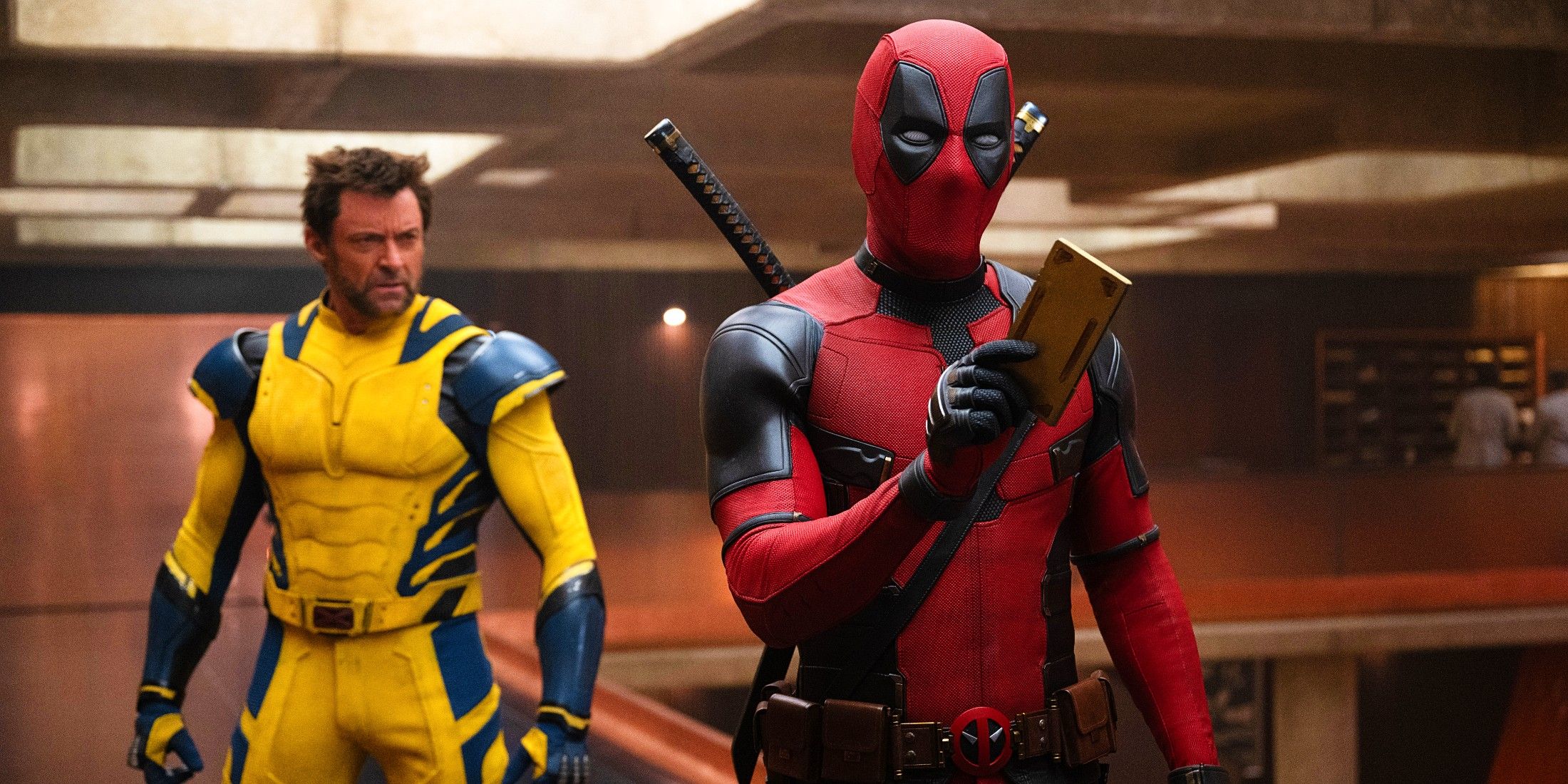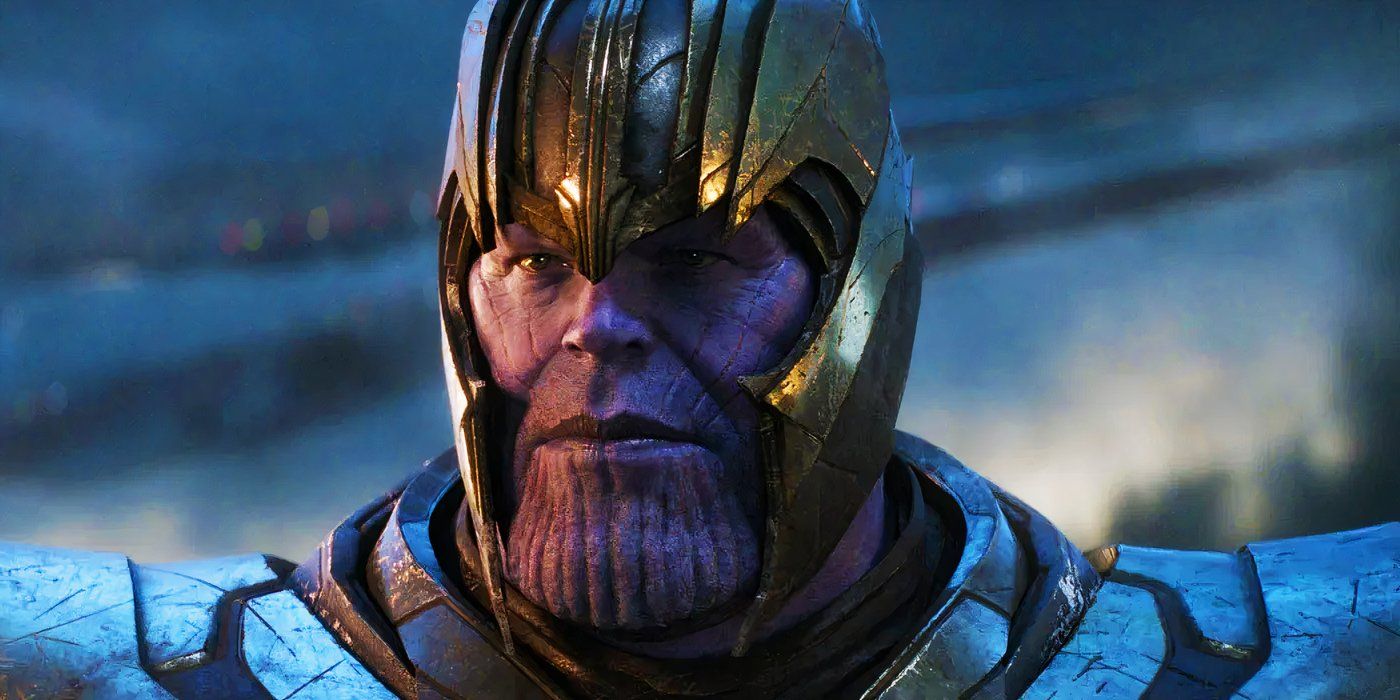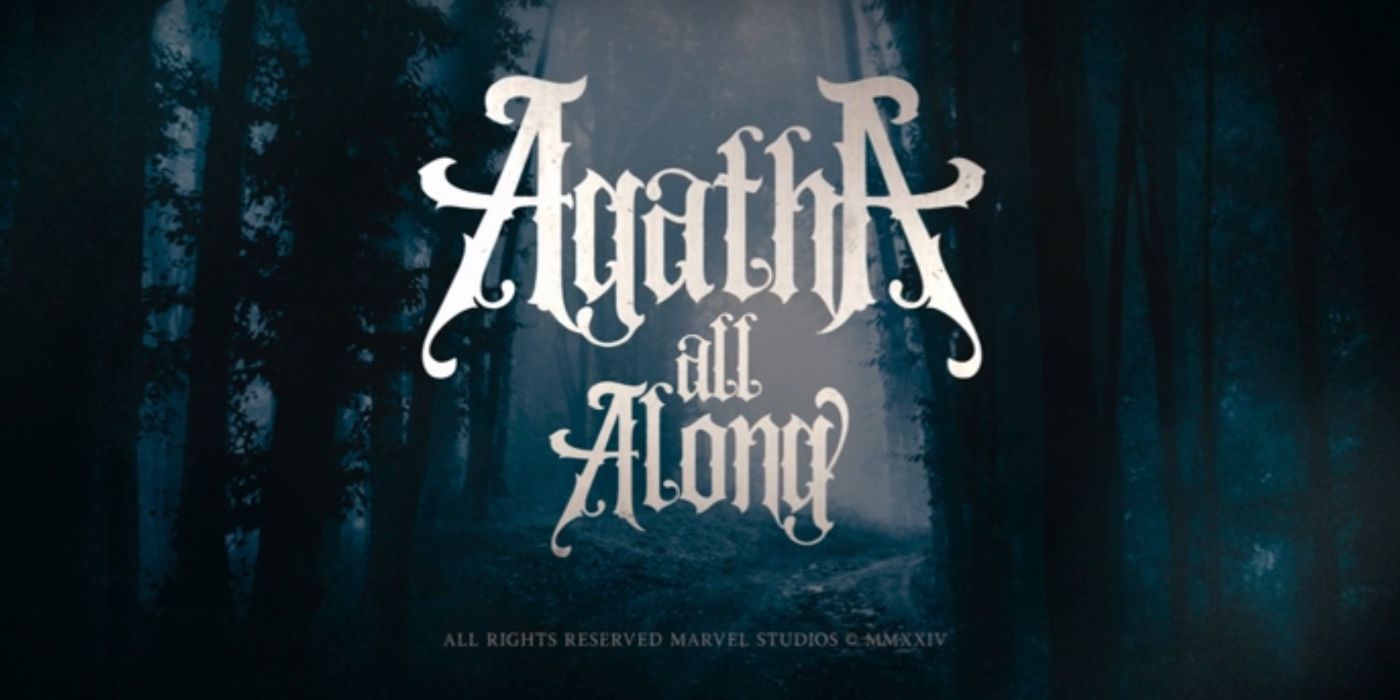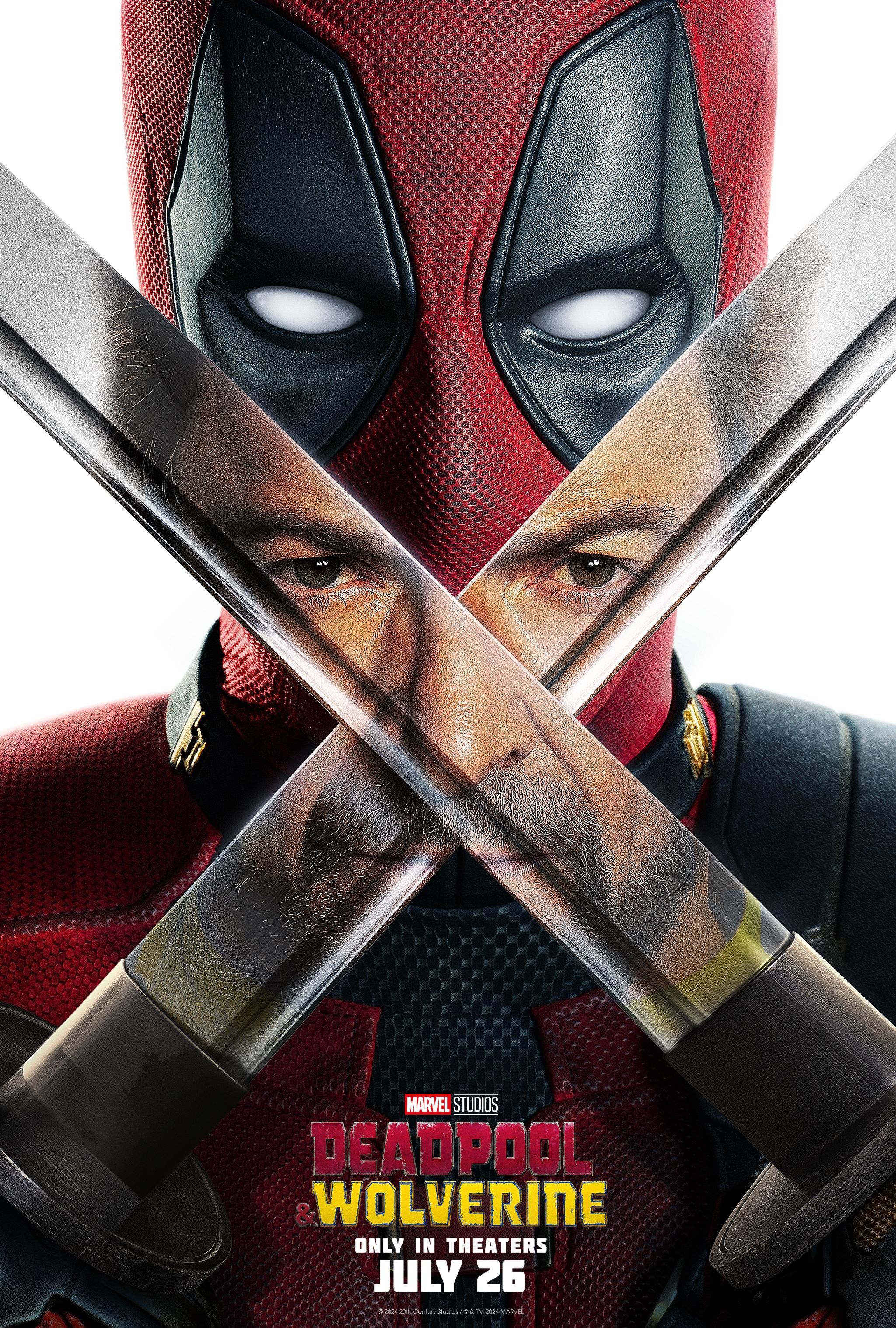Agents Of SHIELD Timeline & MCU Watch Order: How It Fits With The Movies
Summary
The MCU's official timeline order on Disney+ doesn't quite match up with Agents of SHIELD's timeline. As a result, new viewers may be interested to figure out how to watch the show in timeline order with the MCU. At first, the connections were explicit - but the relationship between Marvel Television and Marvel Studios soured after Marvel split in 2015, and the ties became thematic rather than overt. After Avengers: Infinity War, Agents of SHIELD blazed its own trail, largely because nobody at Marvel Television knew how things were going to be resolved. Given that's the case, here's the full Agents of SHIELD timeline in relation to the mainstream MCU.
Agents Of SHIELD Season 1 Begins After Iron Man 3![]() Agents of SHIELD season 1 begins after the events of both The Avengers and Iron Man 3. This is in spite of the fact that it stars Clark Gregg as Phil Coulson, the SHIELD agent murdered by Loki during The Avengers. His mysterious resurrection would be explored over the first three seasons. The initial arc spun out of the Extremis experiments that were uncovered in Iron Man 3, meaning it's possible to place these events quite precisely in the MCU timeline.
Agents of SHIELD season 1 begins after the events of both The Avengers and Iron Man 3. This is in spite of the fact that it stars Clark Gregg as Phil Coulson, the SHIELD agent murdered by Loki during The Avengers. His mysterious resurrection would be explored over the first three seasons. The initial arc spun out of the Extremis experiments that were uncovered in Iron Man 3, meaning it's possible to place these events quite precisely in the MCU timeline.
Thor: The Dark World & Agents Of SHIELD Season 1, Episodes 8-16![]() The MCU's Disney+ timeline diverges with Agents of SHIELD because the show assumes Thor: The Dark World takes place after Iron Man 3, making that clear in episode 8, which is explicitly set in the aftermath of Thor's battle against the Dark Elves in London. The story then continues with Coulson and his SHIELD team exploring a strange conspiracy. It's building to season 1's most important crossover arc, with Captain America: The Winter Soldier. Agents of SHIELD season 1, episode 16 serves as a direct setup to Captain America: The Winter Soldier's Hydra twist.
The MCU's Disney+ timeline diverges with Agents of SHIELD because the show assumes Thor: The Dark World takes place after Iron Man 3, making that clear in episode 8, which is explicitly set in the aftermath of Thor's battle against the Dark Elves in London. The story then continues with Coulson and his SHIELD team exploring a strange conspiracy. It's building to season 1's most important crossover arc, with Captain America: The Winter Soldier. Agents of SHIELD season 1, episode 16 serves as a direct setup to Captain America: The Winter Soldier's Hydra twist.
Captain America: The Winter Soldier & The Rest Of Agents Of SHIELD Season 1![]() It's best to watch Captain America: The Winter Soldier before continuing on with the rest of Agents of SHIELD season 1, although episodes 17 and 18 are concurrent with Steve Rogers' battle at the Triskelion. Appropriately enough, episode 17 is called "Turn, Turn, Turn," and the MCU's Hydra twist is essentially the moment when the show pivots away from its original concept, claiming a whole new identity. The first three seasons continue the war between SHIELD and Hydra. The end of Agents of SHIELD season 1 really defines its place in the MCU's ongoing narrative, explaining why Coulson himself is so important.
It's best to watch Captain America: The Winter Soldier before continuing on with the rest of Agents of SHIELD season 1, although episodes 17 and 18 are concurrent with Steve Rogers' battle at the Triskelion. Appropriately enough, episode 17 is called "Turn, Turn, Turn," and the MCU's Hydra twist is essentially the moment when the show pivots away from its original concept, claiming a whole new identity. The first three seasons continue the war between SHIELD and Hydra. The end of Agents of SHIELD season 1 really defines its place in the MCU's ongoing narrative, explaining why Coulson himself is so important.
Agents Of SHIELD Season 2 Builds To Avengers: Age Of Ultron![]() There are fewer tie-ins through Agents of SHIELD season 2, largely because the MCU shifted focus in Guardians of the Galaxy, although season 2 arguably has a thematic connection to that film in its increasing focus on the terrestrial legacy of the Kree. This season reveals Chloe Bennet's Quake as an Inhuman, and as the show continued, she would become a co-star. There is, however, one nuanced subplot running through Agents of SHIELD season 2 that builds to a head in episode 19, directly setting up Avengers: Age of Ultron. It's best to watch that film after season 2, episode 19, before concluding the season.
There are fewer tie-ins through Agents of SHIELD season 2, largely because the MCU shifted focus in Guardians of the Galaxy, although season 2 arguably has a thematic connection to that film in its increasing focus on the terrestrial legacy of the Kree. This season reveals Chloe Bennet's Quake as an Inhuman, and as the show continued, she would become a co-star. There is, however, one nuanced subplot running through Agents of SHIELD season 2 that builds to a head in episode 19, directly setting up Avengers: Age of Ultron. It's best to watch that film after season 2, episode 19, before concluding the season.
Agents Of SHIELD Season 2 Follows On From Ant-Man & Ties In With Captain America: Civil War![]() Ant-Man takes place between Agents of SHIELD seasons 2 and 3, clearly confirmed by a throwaway reference to Ant-Man's Pym Particles in season 3, episode 1. By this point, Agents of SHIELD is increasingly blazing its own trail, with the narrative building upon the Inhuman lore established in season 2. Still, this means the passing of the Sokovia Accords naturally has a massive impact, because empowered superheroes are forced to register. It's best to watch Agents of SHIELD season 3, episodes 1-19 and then check out Captain America: Civil War before returning to finish season 3.
Ant-Man takes place between Agents of SHIELD seasons 2 and 3, clearly confirmed by a throwaway reference to Ant-Man's Pym Particles in season 3, episode 1. By this point, Agents of SHIELD is increasingly blazing its own trail, with the narrative building upon the Inhuman lore established in season 2. Still, this means the passing of the Sokovia Accords naturally has a massive impact, because empowered superheroes are forced to register. It's best to watch Agents of SHIELD season 3, episodes 1-19 and then check out Captain America: Civil War before returning to finish season 3.
Agents Of SHIELD Season 4 Takes A Different Approach To MCU Tie-Ins![]() The relationship between Marvel Studios and Marvel Television had become more strained by Agents of SHIELD season 4 and, as a result, this season didn't feature explicit connections. Instead, it focused on a thematic nod - embracing the introduction of the supernatural in Doctor Strange by focusing on Gabriel Luna's Ghost Rider, who swiftly became a fan-favorite. Agents of SHIELD season 4 took on a different narrative approach as well, with the story divided into three "pods," each with its own central theme. It was a tremendous success, obscuring the fact the whole season only takes place over the course of a few weeks in-universe.
The relationship between Marvel Studios and Marvel Television had become more strained by Agents of SHIELD season 4 and, as a result, this season didn't feature explicit connections. Instead, it focused on a thematic nod - embracing the introduction of the supernatural in Doctor Strange by focusing on Gabriel Luna's Ghost Rider, who swiftly became a fan-favorite. Agents of SHIELD season 4 took on a different narrative approach as well, with the story divided into three "pods," each with its own central theme. It was a tremendous success, obscuring the fact the whole season only takes place over the course of a few weeks in-universe.
Agents Of SHIELD Season 5 Ties In With Thor: Ragnarok & Avengers: Infinity War![]() At this stage, the MCU was building towards Avengers: Infinity War, and Agents of SHIELD's writers chose to make sure their show was part of that event. The first 10 episodes of Agents of SHIELD season 5 were largely set in a dystopian future, divorced from the MCU, and episode 11 is concurrent with Thor: Ragnarok. Episodes 12-18 took place before Infinity War, but 19-22 were actually concurrent with it, although they omitted Thanos' snap. The writers expected season 5 to be the end of the road and didn't want to close off their story on the pessimistic note of showing half their stars blipped out of existence.
At this stage, the MCU was building towards Avengers: Infinity War, and Agents of SHIELD's writers chose to make sure their show was part of that event. The first 10 episodes of Agents of SHIELD season 5 were largely set in a dystopian future, divorced from the MCU, and episode 11 is concurrent with Thor: Ragnarok. Episodes 12-18 took place before Infinity War, but 19-22 were actually concurrent with it, although they omitted Thanos' snap. The writers expected season 5 to be the end of the road and didn't want to close off their story on the pessimistic note of showing half their stars blipped out of existence.
Agents Of SHIELD Seasons 6 & 7 Don't Fit With The Main MCU Timeline![]() Agents of SHIELD seasons 6 and 7 are best viewed apart from the mainstream MCU, because they really don't fit with the timeline at all. There's no reference to the Blip, and the galaxy they portray is a far cry from the dystopian post-snap world portrayed in MCU Disney+ TV shows. There was a simple reason for this. As former Marvel Television chief Jeph Loeb noted at the time, Agents of SHIELD's writers didn't know what would happen following Avengers: Infinity War. "The movies are the lead dog," Loeb explained. "They’re setting the timeline for the MCU and what’s going on. Our job is to navigate within that world."
Agents of SHIELD seasons 6 and 7 are best viewed apart from the mainstream MCU, because they really don't fit with the timeline at all. There's no reference to the Blip, and the galaxy they portray is a far cry from the dystopian post-snap world portrayed in MCU Disney+ TV shows. There was a simple reason for this. As former Marvel Television chief Jeph Loeb noted at the time, Agents of SHIELD's writers didn't know what would happen following Avengers: Infinity War. "The movies are the lead dog," Loeb explained. "They’re setting the timeline for the MCU and what’s going on. Our job is to navigate within that world."
In Loeb's view, the only way to continue Agents of SHIELD's story was to assume they were pre-snap - although that argument rather breaks the timeline of season 5. Season 6 is the most problematic, with Agents of SHIELD season 7 taking its heroes on a time-travel/multiversal adventure. Ironically, this predicted the MCU's entire Phase 4 trajectory and the events of the Multiverse Saga, even containing a final MCU Easter egg to the Quantum Realm.
Why It Doesn't Matter Whether Agents Of SHIELD Is Canon Or Not![]() Agents of SHIELD's canon status to the MCU has often been the subject of intense debate, but it doesn't really matter. As much as the series attempted to tie into the movies, due to them sharing source material and a few key characters, Agents of SHIELD almost always marched to the beat of its own drum, and the MCU movies made no effort to connect to their TV counterpart. Great standalone heroes like Agents of SHIELD's Quake have been exclusive to the show so far, and debating its canonicity takes away from the appreciation of just how much stamina the show built up through strong characters and good storytelling.
Agents of SHIELD's canon status to the MCU has often been the subject of intense debate, but it doesn't really matter. As much as the series attempted to tie into the movies, due to them sharing source material and a few key characters, Agents of SHIELD almost always marched to the beat of its own drum, and the MCU movies made no effort to connect to their TV counterpart. Great standalone heroes like Agents of SHIELD's Quake have been exclusive to the show so far, and debating its canonicity takes away from the appreciation of just how much stamina the show built up through strong characters and good storytelling.
How The MCU Multiverse Saga Can Reconnect With Agents Of SHIELD![]() Now that the Multiverse is in play in the MCU, Agents of SHIELD's canonicity is especially moot. Marvel's favorite new tactic for explaining conflicting storylines, recastings, and write-offs extends to patching the gap between its longest-running series and its movie franchises. Agents of SHIELD could easily exist in a different universe to the MCU – one that has shared events and characters very closely but not exactly. This would neatly explain some inconsistencies and plot holes between Agents of SHIELD and the MCU, and could even hint at the return of various Agents of SHIELD characters in future MCU projects.
Now that the Multiverse is in play in the MCU, Agents of SHIELD's canonicity is especially moot. Marvel's favorite new tactic for explaining conflicting storylines, recastings, and write-offs extends to patching the gap between its longest-running series and its movie franchises. Agents of SHIELD could easily exist in a different universe to the MCU – one that has shared events and characters very closely but not exactly. This would neatly explain some inconsistencies and plot holes between Agents of SHIELD and the MCU, and could even hint at the return of various Agents of SHIELD characters in future MCU projects.
The MCU's Re-Added Netflix Canon Shows How Agents Of SHIELD Can Become Fully Canon Again![]() Netflix's Marvel shows - much like Agents of SHIELD - enjoyed a period of clear canonicity, before being rendered seemingly an entirely separate entity from the MCU. However, things took a surprise change when Charlie Cox's Daredevil appeared in Spider-Man: No Way Home, establishing that the Netflix universe was perhaps more intertwined with the MCU than it may have prior appeared. This connection was steadily furthered, with Echo showing that the Daredevil show lore was at least partially still canon via its depiction of Vincent D'Onofrio's Wilson Fisk and his backstory, which uses elements from the prior series.
Netflix's Marvel shows - much like Agents of SHIELD - enjoyed a period of clear canonicity, before being rendered seemingly an entirely separate entity from the MCU. However, things took a surprise change when Charlie Cox's Daredevil appeared in Spider-Man: No Way Home, establishing that the Netflix universe was perhaps more intertwined with the MCU than it may have prior appeared. This connection was steadily furthered, with Echo showing that the Daredevil show lore was at least partially still canon via its depiction of Vincent D'Onofrio's Wilson Fisk and his backstory, which uses elements from the prior series.
The Netflix shows are now so connected to the MCU again that Marvel executive Brad Winderbaum has expressed the idea that they are fully and officially canon based on Disney+ moving Netflix shows into its MCU timeline. Based on this and X-Men '97 getting a Marvel reboot some decades after its initial conclusion, it's clear there's a well-established precedent for bringing back older shows and reincorporating them into the modern age - and the MCU itself - meaning Agents of SHIELD has more of an opportunity to return now than ever.
[圖擷取自網路,如有疑問請私訊]
- Agents of SHIELD was created to align with MCU movies and had explicit tie-ins initially, but the connection became more thematic later.
- Viewers interested in watching the show in timeline order with MCU may need to adjust as the Disney+ timeline doesn't perfectly align.
- Season 1 connects with Iron Man 3 and The Avengers, while later seasons incorporate elements of other MCU films for thematic continuity.
The MCU's official timeline order on Disney+ doesn't quite match up with Agents of SHIELD's timeline. As a result, new viewers may be interested to figure out how to watch the show in timeline order with the MCU. At first, the connections were explicit - but the relationship between Marvel Television and Marvel Studios soured after Marvel split in 2015, and the ties became thematic rather than overt. After Avengers: Infinity War, Agents of SHIELD blazed its own trail, largely because nobody at Marvel Television knew how things were going to be resolved. Given that's the case, here's the full Agents of SHIELD timeline in relation to the mainstream MCU.
Agents Of SHIELD Season 1 Begins After Iron Man 3
 Agents of SHIELD season 1 begins after the events of both The Avengers and Iron Man 3. This is in spite of the fact that it stars Clark Gregg as Phil Coulson, the SHIELD agent murdered by Loki during The Avengers. His mysterious resurrection would be explored over the first three seasons. The initial arc spun out of the Extremis experiments that were uncovered in Iron Man 3, meaning it's possible to place these events quite precisely in the MCU timeline.
Agents of SHIELD season 1 begins after the events of both The Avengers and Iron Man 3. This is in spite of the fact that it stars Clark Gregg as Phil Coulson, the SHIELD agent murdered by Loki during The Avengers. His mysterious resurrection would be explored over the first three seasons. The initial arc spun out of the Extremis experiments that were uncovered in Iron Man 3, meaning it's possible to place these events quite precisely in the MCU timeline.Thor: The Dark World & Agents Of SHIELD Season 1, Episodes 8-16
 The MCU's Disney+ timeline diverges with Agents of SHIELD because the show assumes Thor: The Dark World takes place after Iron Man 3, making that clear in episode 8, which is explicitly set in the aftermath of Thor's battle against the Dark Elves in London. The story then continues with Coulson and his SHIELD team exploring a strange conspiracy. It's building to season 1's most important crossover arc, with Captain America: The Winter Soldier. Agents of SHIELD season 1, episode 16 serves as a direct setup to Captain America: The Winter Soldier's Hydra twist.
The MCU's Disney+ timeline diverges with Agents of SHIELD because the show assumes Thor: The Dark World takes place after Iron Man 3, making that clear in episode 8, which is explicitly set in the aftermath of Thor's battle against the Dark Elves in London. The story then continues with Coulson and his SHIELD team exploring a strange conspiracy. It's building to season 1's most important crossover arc, with Captain America: The Winter Soldier. Agents of SHIELD season 1, episode 16 serves as a direct setup to Captain America: The Winter Soldier's Hydra twist.Captain America: The Winter Soldier & The Rest Of Agents Of SHIELD Season 1
 It's best to watch Captain America: The Winter Soldier before continuing on with the rest of Agents of SHIELD season 1, although episodes 17 and 18 are concurrent with Steve Rogers' battle at the Triskelion. Appropriately enough, episode 17 is called "Turn, Turn, Turn," and the MCU's Hydra twist is essentially the moment when the show pivots away from its original concept, claiming a whole new identity. The first three seasons continue the war between SHIELD and Hydra. The end of Agents of SHIELD season 1 really defines its place in the MCU's ongoing narrative, explaining why Coulson himself is so important.
It's best to watch Captain America: The Winter Soldier before continuing on with the rest of Agents of SHIELD season 1, although episodes 17 and 18 are concurrent with Steve Rogers' battle at the Triskelion. Appropriately enough, episode 17 is called "Turn, Turn, Turn," and the MCU's Hydra twist is essentially the moment when the show pivots away from its original concept, claiming a whole new identity. The first three seasons continue the war between SHIELD and Hydra. The end of Agents of SHIELD season 1 really defines its place in the MCU's ongoing narrative, explaining why Coulson himself is so important.Agents Of SHIELD Season 2 Builds To Avengers: Age Of Ultron
 There are fewer tie-ins through Agents of SHIELD season 2, largely because the MCU shifted focus in Guardians of the Galaxy, although season 2 arguably has a thematic connection to that film in its increasing focus on the terrestrial legacy of the Kree. This season reveals Chloe Bennet's Quake as an Inhuman, and as the show continued, she would become a co-star. There is, however, one nuanced subplot running through Agents of SHIELD season 2 that builds to a head in episode 19, directly setting up Avengers: Age of Ultron. It's best to watch that film after season 2, episode 19, before concluding the season.
There are fewer tie-ins through Agents of SHIELD season 2, largely because the MCU shifted focus in Guardians of the Galaxy, although season 2 arguably has a thematic connection to that film in its increasing focus on the terrestrial legacy of the Kree. This season reveals Chloe Bennet's Quake as an Inhuman, and as the show continued, she would become a co-star. There is, however, one nuanced subplot running through Agents of SHIELD season 2 that builds to a head in episode 19, directly setting up Avengers: Age of Ultron. It's best to watch that film after season 2, episode 19, before concluding the season.Agents Of SHIELD Season 2 Follows On From Ant-Man & Ties In With Captain America: Civil War
 Ant-Man takes place between Agents of SHIELD seasons 2 and 3, clearly confirmed by a throwaway reference to Ant-Man's Pym Particles in season 3, episode 1. By this point, Agents of SHIELD is increasingly blazing its own trail, with the narrative building upon the Inhuman lore established in season 2. Still, this means the passing of the Sokovia Accords naturally has a massive impact, because empowered superheroes are forced to register. It's best to watch Agents of SHIELD season 3, episodes 1-19 and then check out Captain America: Civil War before returning to finish season 3.
Ant-Man takes place between Agents of SHIELD seasons 2 and 3, clearly confirmed by a throwaway reference to Ant-Man's Pym Particles in season 3, episode 1. By this point, Agents of SHIELD is increasingly blazing its own trail, with the narrative building upon the Inhuman lore established in season 2. Still, this means the passing of the Sokovia Accords naturally has a massive impact, because empowered superheroes are forced to register. It's best to watch Agents of SHIELD season 3, episodes 1-19 and then check out Captain America: Civil War before returning to finish season 3.Agents Of SHIELD Season 4 Takes A Different Approach To MCU Tie-Ins
 The relationship between Marvel Studios and Marvel Television had become more strained by Agents of SHIELD season 4 and, as a result, this season didn't feature explicit connections. Instead, it focused on a thematic nod - embracing the introduction of the supernatural in Doctor Strange by focusing on Gabriel Luna's Ghost Rider, who swiftly became a fan-favorite. Agents of SHIELD season 4 took on a different narrative approach as well, with the story divided into three "pods," each with its own central theme. It was a tremendous success, obscuring the fact the whole season only takes place over the course of a few weeks in-universe.
The relationship between Marvel Studios and Marvel Television had become more strained by Agents of SHIELD season 4 and, as a result, this season didn't feature explicit connections. Instead, it focused on a thematic nod - embracing the introduction of the supernatural in Doctor Strange by focusing on Gabriel Luna's Ghost Rider, who swiftly became a fan-favorite. Agents of SHIELD season 4 took on a different narrative approach as well, with the story divided into three "pods," each with its own central theme. It was a tremendous success, obscuring the fact the whole season only takes place over the course of a few weeks in-universe.Agents Of SHIELD Season 5 Ties In With Thor: Ragnarok & Avengers: Infinity War
 At this stage, the MCU was building towards Avengers: Infinity War, and Agents of SHIELD's writers chose to make sure their show was part of that event. The first 10 episodes of Agents of SHIELD season 5 were largely set in a dystopian future, divorced from the MCU, and episode 11 is concurrent with Thor: Ragnarok. Episodes 12-18 took place before Infinity War, but 19-22 were actually concurrent with it, although they omitted Thanos' snap. The writers expected season 5 to be the end of the road and didn't want to close off their story on the pessimistic note of showing half their stars blipped out of existence.
At this stage, the MCU was building towards Avengers: Infinity War, and Agents of SHIELD's writers chose to make sure their show was part of that event. The first 10 episodes of Agents of SHIELD season 5 were largely set in a dystopian future, divorced from the MCU, and episode 11 is concurrent with Thor: Ragnarok. Episodes 12-18 took place before Infinity War, but 19-22 were actually concurrent with it, although they omitted Thanos' snap. The writers expected season 5 to be the end of the road and didn't want to close off their story on the pessimistic note of showing half their stars blipped out of existence.Agents Of SHIELD Seasons 6 & 7 Don't Fit With The Main MCU Timeline
 Agents of SHIELD seasons 6 and 7 are best viewed apart from the mainstream MCU, because they really don't fit with the timeline at all. There's no reference to the Blip, and the galaxy they portray is a far cry from the dystopian post-snap world portrayed in MCU Disney+ TV shows. There was a simple reason for this. As former Marvel Television chief Jeph Loeb noted at the time, Agents of SHIELD's writers didn't know what would happen following Avengers: Infinity War. "The movies are the lead dog," Loeb explained. "They’re setting the timeline for the MCU and what’s going on. Our job is to navigate within that world."
Agents of SHIELD seasons 6 and 7 are best viewed apart from the mainstream MCU, because they really don't fit with the timeline at all. There's no reference to the Blip, and the galaxy they portray is a far cry from the dystopian post-snap world portrayed in MCU Disney+ TV shows. There was a simple reason for this. As former Marvel Television chief Jeph Loeb noted at the time, Agents of SHIELD's writers didn't know what would happen following Avengers: Infinity War. "The movies are the lead dog," Loeb explained. "They’re setting the timeline for the MCU and what’s going on. Our job is to navigate within that world."In Loeb's view, the only way to continue Agents of SHIELD's story was to assume they were pre-snap - although that argument rather breaks the timeline of season 5. Season 6 is the most problematic, with Agents of SHIELD season 7 taking its heroes on a time-travel/multiversal adventure. Ironically, this predicted the MCU's entire Phase 4 trajectory and the events of the Multiverse Saga, even containing a final MCU Easter egg to the Quantum Realm.
Why It Doesn't Matter Whether Agents Of SHIELD Is Canon Or Not
 Agents of SHIELD's canon status to the MCU has often been the subject of intense debate, but it doesn't really matter. As much as the series attempted to tie into the movies, due to them sharing source material and a few key characters, Agents of SHIELD almost always marched to the beat of its own drum, and the MCU movies made no effort to connect to their TV counterpart. Great standalone heroes like Agents of SHIELD's Quake have been exclusive to the show so far, and debating its canonicity takes away from the appreciation of just how much stamina the show built up through strong characters and good storytelling.
Agents of SHIELD's canon status to the MCU has often been the subject of intense debate, but it doesn't really matter. As much as the series attempted to tie into the movies, due to them sharing source material and a few key characters, Agents of SHIELD almost always marched to the beat of its own drum, and the MCU movies made no effort to connect to their TV counterpart. Great standalone heroes like Agents of SHIELD's Quake have been exclusive to the show so far, and debating its canonicity takes away from the appreciation of just how much stamina the show built up through strong characters and good storytelling.How The MCU Multiverse Saga Can Reconnect With Agents Of SHIELD
 Now that the Multiverse is in play in the MCU, Agents of SHIELD's canonicity is especially moot. Marvel's favorite new tactic for explaining conflicting storylines, recastings, and write-offs extends to patching the gap between its longest-running series and its movie franchises. Agents of SHIELD could easily exist in a different universe to the MCU – one that has shared events and characters very closely but not exactly. This would neatly explain some inconsistencies and plot holes between Agents of SHIELD and the MCU, and could even hint at the return of various Agents of SHIELD characters in future MCU projects.
Now that the Multiverse is in play in the MCU, Agents of SHIELD's canonicity is especially moot. Marvel's favorite new tactic for explaining conflicting storylines, recastings, and write-offs extends to patching the gap between its longest-running series and its movie franchises. Agents of SHIELD could easily exist in a different universe to the MCU – one that has shared events and characters very closely but not exactly. This would neatly explain some inconsistencies and plot holes between Agents of SHIELD and the MCU, and could even hint at the return of various Agents of SHIELD characters in future MCU projects.The MCU's Re-Added Netflix Canon Shows How Agents Of SHIELD Can Become Fully Canon Again
 Netflix's Marvel shows - much like Agents of SHIELD - enjoyed a period of clear canonicity, before being rendered seemingly an entirely separate entity from the MCU. However, things took a surprise change when Charlie Cox's Daredevil appeared in Spider-Man: No Way Home, establishing that the Netflix universe was perhaps more intertwined with the MCU than it may have prior appeared. This connection was steadily furthered, with Echo showing that the Daredevil show lore was at least partially still canon via its depiction of Vincent D'Onofrio's Wilson Fisk and his backstory, which uses elements from the prior series.
Netflix's Marvel shows - much like Agents of SHIELD - enjoyed a period of clear canonicity, before being rendered seemingly an entirely separate entity from the MCU. However, things took a surprise change when Charlie Cox's Daredevil appeared in Spider-Man: No Way Home, establishing that the Netflix universe was perhaps more intertwined with the MCU than it may have prior appeared. This connection was steadily furthered, with Echo showing that the Daredevil show lore was at least partially still canon via its depiction of Vincent D'Onofrio's Wilson Fisk and his backstory, which uses elements from the prior series.The Netflix shows are now so connected to the MCU again that Marvel executive Brad Winderbaum has expressed the idea that they are fully and officially canon based on Disney+ moving Netflix shows into its MCU timeline. Based on this and X-Men '97 getting a Marvel reboot some decades after its initial conclusion, it's clear there's a well-established precedent for bringing back older shows and reincorporating them into the modern age - and the MCU itself - meaning Agents of SHIELD has more of an opportunity to return now than ever.
[圖擷取自網路,如有疑問請私訊]
|
本篇 |
不想錯過? 請追蹤FB專頁! |
| 喜歡這篇嗎?快分享吧! |
相關文章
tag_marvel









